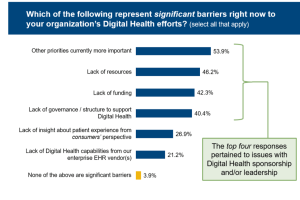Breaking Barriers: Achieving Holistic Health in the Digital Age

The Impact of Digital Age on Health
The digital age has brought transformative changes across various facets of life, especially concerning health. With the advent of smartphones, tablets, and wearables, access to health information is at our fingertips. However, this convenience doesn’t come without challenges. Take, for instance, a friend who increased their screen time during work-from-home days. They reported feeling more fatigued and less motivated to exercise. This experience reflects a common trend, as many become sedentary, leading to physical and mental health issues. It becomes imperative to create a balance between our digital interactions and our well-being.
- Breaking Barriers: Achieving Holistic Health in the Digital Age
- The Impact of Digital Age on Health
- Understanding Holistic Health
- Breaking Physical Barriers
- Importance of Physical Activity
- Nutrition in the Digital Era
- Mental Health in the Digital Age
- Managing Stress and Anxiety
- Digital Detox for Mental Well-being
- Social Connections and Emotional Health
- Building and Nurturing Relationships
- Addressing Loneliness in the Digital Age
- Balancing Work and Personal Life
- Setting Boundaries in the Digital World
- Mindfulness and Work-Life Balance
- Sleep and Digital Wellness
- Impact of Screen Time on Sleep
- Creating a Healthy Sleep Routine
- The Role of Technology in Health
- Benefits and Risks of Health Apps
- Wearable Tech for Holistic Health Tracking
- Increase in Screen Time: Many individuals spend upwards of 12 hours a day in front of screens.
- Degenerative Health Trends: Increased cases of anxiety, depression, and obesity are evident.
Understanding Holistic Health
Holistic health goes beyond just the absence of illness; it emphasizes the importance of nurturing the body, mind, and spirit. It considers all aspects of an individual’s life, promoting wellness rather than merely treating ailments. To fully embrace holistic health, individuals are encouraged to:
- Engage in Regular Exercise: Physical activity helps alleviate stress and boosts mood.
- Practice Mindfulness: Techniques like meditation enhance mental clarity and emotional stability.
- Eat a Balanced Diet: A nutritious diet fuels the body and supports overall health.
In this interconnected digital world, fostering holistic health is essential for maintaining balance and well-being amidst the distractions of modern technology.
Breaking Physical Barriers
Importance of Physical Activity
As we navigate the complexities of the digital age, the significance of physical activity becomes undeniable. Many individuals find themselves glued to their screens, often sacrificing physical health for convenience. Consider someone who works a desk job; they might spend hours sitting, resulting in reduced circulation and energy levels. A simple shift like incorporating short breaks to stretch or a walk during lunch can make a world of difference. Regular physical activity is vital as it:
- Boosts Mood: Exercise releases endorphins, known as “feel-good” hormones.
- Improves Sleep Quality: Being active during the day can help fall asleep faster at night.
- Enhances Cognitive Function: Physical activity increases blood flow to the brain, sharpening focus and memory.
Nutrition in the Digital Era
Nutrition also plays a pivotal role in maintaining health in this tech-savvy environment. With easy access to fast food and high-calorie snacks, healthy eating choices can feel overwhelming. However, incorporating nutritious options can be simpler than imagined. Here are some ideas:
- Meal Prep: Preparing healthy meals ahead of time can eliminate the temptation of junk food.
- Mindful Eating: Paying attention to hunger cues and eating slowly can enhance the enjoyment of food.
- Healthier Alternatives: Swapping soda for water or chips for nuts contributes to better health.
As individuals break physical barriers, understanding the importance of balanced nutrition and staying active can lead to a healthier, more fulfilling life.
Mental Health in the Digital Age
Managing Stress and Anxiety
Navigating life in the digital realm often brings heightened stress and anxiety. With constant notifications from social media to emails, it can feel overwhelming. Many individuals experience moments of anxiety triggered by the digital world; a friend recently shared how checking their phone first thing in the morning led to a stressful start, as they were immediately bombarded with work demands. To effectively manage stress, consider these strategies:
- Limit News Exposure: Too much information can be counterproductive. Allocate specific times to catch up on news.
- Practice Deep Breathing: Taking a few moments to breathe deeply can help reduce immediate tension and regain focus.
- Engage in Physical Activities: Exercise, even if it’s a short walk, can be a great way to alleviate stress.
Digital Detox for Mental Well-being
A digital detox can further enhance mental well-being. Taking a break from screens, even if just for a day or weekend, can be refreshing. It allows space to reconnect with yourself and the world around you. To embark on a successful digital detox, try these tips:
- Set Specific Goals: Determine how long you want to unplug—be it a few hours or days.
- Choose Alternative Activities: Fill the time with books, hobbies, or outdoor activities.
- Communicate Your Plan: Let friends and family know you’re unplugging, so they understand your absence.
By managing stress and committing to digital detoxes, individuals can foster resilience and improve overall mental health in the fast-paced digital age.
Social Connections and Emotional Health
Building and Nurturing Relationships
In a world where digital interactions often replace face-to-face conversations, the importance of nurturing genuine relationships can sometimes fall by the wayside. A close friend recently confided in me that despite having hundreds of online connections, she felt isolated. This realization prompted her to seek deeper, more meaningful relationships. To build and nurture connections in this digital age, consider the following strategies:
- Schedule Regular Meet-ups: Set aside intentional time to meet friends or family either in person or via video calls, creating a routine that reinforces connection.
- Engage in Shared Activities: Whether it’s a book club, workout class, or hobby group, participating in activities can foster stronger bonds.
- Express Gratitude: Taking a moment to tell someone you appreciate them can strengthen connections and enhance emotional health.
Addressing Loneliness in the Digital Age
While technology offers opportunities for connection, it can ironically exacerbate feelings of loneliness. Many individuals report feeling lonelier amidst social media platforms, where curated lives can create unrealistic standards. To tackle loneliness effectively, one can:
- Limit Social Media Usage: Reducing screen time spent on social networks can mitigate feelings of inadequacy.
- Seek Community Engagement: Volunteering or joining local clubs is a great way to meet new people and foster a sense of belonging.
- Reach Out for Support: If loneliness persists, consider talking to a professional to navigate these feelings.
By investing time in meaningful relationships and actively addressing feelings of loneliness, individuals can enhance their emotional health and create a supportive network that thrives in both the digital and real worlds.
Balancing Work and Personal Life
Setting Boundaries in the Digital World
In today’s digital landscape, balancing work and personal life can feel like a relentless struggle. With emails pinging at all hours and the expectation to be “always on,” it’s easy to let work spill over into personal time. A colleague recently shared that their late-night email checking habit left them feeling burnt out by the weekends. To reclaim a healthier balance, setting clear boundaries is essential. Here are some effective strategies:
- Designate Work Hours: Establish specific times for work-related tasks and stick to them. Communicate these boundaries to colleagues and supervisors.
- Create a Distinct Workspace: If working from home, set up a dedicated workspace to mentally separate work from personal life.
- Turn Off Notifications: Silence non-essential notifications after work hours to minimize distractions.
Mindfulness and Work-Life Balance
Mindfulness can also play a pivotal role in finding a work-life balance. Practicing mindfulness encourages individuals to stay present, reducing stress and enhancing focus. Ways to incorporate mindfulness include:
- Daily Meditation: Even five minutes of meditation can help reset your mind and foster clarity.
- Mindful Breaks: Take intentional breaks throughout the day to check in with yourself, breathe, or stretch.
- Reflect on Priorities: Regularly assess what’s important to you personally and professionally; this acknowledgment can guide decisions and help maintain balance.
By setting boundaries and embracing mindfulness, individuals can cultivate a healthier work-life balance, fostering both productivity and personal fulfillment in their lives.
Sleep and Digital Wellness
Impact of Screen Time on Sleep
As we strive for a balance between work and personal life, the impact of screen time on sleep is an often-overlooked factor. Many people find themselves scrolling through their phones or watching series late into the night, unaware of the detrimental effects. A friend of mine recently admitted that their nightly habit of binge-watching shows left them feeling groggy and unfocused the next day. Research shows that excessive screen time, especially before bed, can disrupt the body’s natural sleep cycle. The blue light emitted from screens suppresses melatonin production, making it harder to fall asleep. Here are some impacts of screen time on sleep to consider:
- Delayed Sleep Onset: Difficulty falling asleep leads to shorter sleep durations.
- Reduced Sleep Quality: Frequent awakenings during the night can result in less restorative sleep.
- Increased daytime fatigue: This can affect productivity and overall well-being.
Creating a Healthy Sleep Routine
To combat these issues, establishing a healthy sleep routine is essential. Creating habits that promote restful sleep can significantly improve overall health.
- Set a Consistent Sleep Schedule: Aim to go to bed and wake up at the same time every day, even on weekends.
- Limit Screen Exposure: Consider setting a “tech curfew” an hour before bed. Instead, engage in relaxing activities such as reading or gentle yoga.
- Create a Comfortable Environment: Consider factors like room temperature, noise levels, and lighting to enhance your sleep space.
By understanding the impact of screen time on sleep and creating a dedicated sleep routine, individuals can enhance their digital wellness and ensure a more restful night, ultimately leading to improved productivity and emotional health.
The Role of Technology in Health
Benefits and Risks of Health Apps
As we embrace the digital age, health apps have emerged as powerful tools in managing our well-being. These apps offer everything from fitness tracking to meditation guides, helping individuals take control of their health. A friend of mine recently started using a nutrition app, and she found it incredibly helpful in tracking her daily intake and staying accountable. However, while health apps provide numerous benefits, there are risks to consider. Some key points include:
- User-Friendly Tracking: Many apps allow users to easily monitor their sleep, nutrition, and physical activity, fostering awareness and motivation.
- Access to Information: Health apps can provide valuable insights into personal health metrics and trends.
Yet, be wary of potential pitfalls:
- Information Overload: Too much data can be overwhelming, leading to anxiety rather than empowerment.
- Inaccuracies: Not all health apps are created equal; some may provide misleading or inaccurate information, which can misguide health decisions.
Wearable Tech for Holistic Health Tracking
On the other end of the spectrum, wearable technology has revolutionized health tracking. Devices like fitness trackers and smartwatches provide real-time insights into many aspects of health. For example, a colleague of mine swears by his fitness tracker, stating that it’s transformed his workout routine by providing clear data on his activity levels. Benefits of wearable tech include:
- Continuous Monitoring: Track heart rate, steps, and sleep patterns throughout the day without any additional effort.
- Goal Setting: Many devices allow users to set personal health goals and provide reminders to stay active.
However, moderation is key. It’s essential to strike a balance between using technology as a helpful tool and avoiding becoming overly reliant on it. By thoughtfully integrating health apps and wearable technology into daily routines, individuals can enhance their health journey while maintaining a strong sense of well-being.





